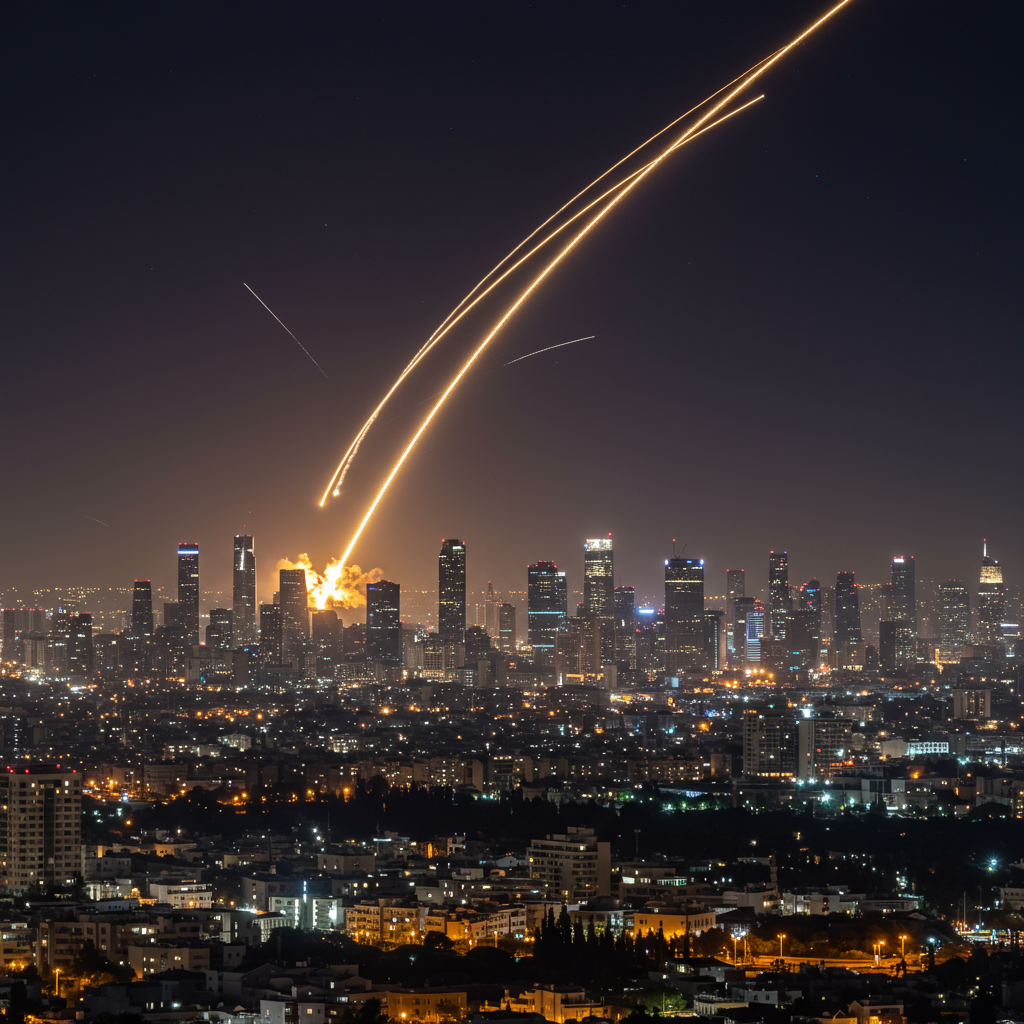Escalation Deepens as Israel and Iran Exchange Direct Missile Strikes
A significant escalation in the long-running tensions between Israel and Iran unfolded over the weekend, marked by direct missile and drone exchanges that saw explosions heard in major cities across both nations, including Tel Aviv, Jerusalem, and Tehran. The exchange followed a wave of Israeli strikes inside Iran, prompting Iran to launch a large-scale retaliatory attack.
Iran’s Retaliation Strikes Israeli Targets
Early Saturday morning (June 14, 2025), Iran launched a wave of missile and drone attacks against Israel. Air raid sirens sounded across wide swathes of the country, from the central Coastal Plain including Tel Aviv and the Gush Dan area, to Jerusalem, the Dead Sea, and parts of the southern West Bank. Millions of Israelis were forced to seek shelter.
The Israeli military reported detecting dozens of incoming projectiles. While many were intercepted by Israeli air defense systems, including drones intercepted over the Dead Sea and southern West Bank, reports confirmed direct impacts in several locations. Blasts were heard clearly in Tel Aviv and nearby Ramat Gan.
Impacts and Casualties in Israel
The Iranian strikes resulted in casualties and damage across Israel. Emergency services, including Magen David Adom (MDA) and the Fire and Rescue Authority, responded to multiple impact sites. Extensive damage was reported, including structural damage to buildings. Images from Rishon LeZion, near Tel Aviv, showed damaged residential buildings and debris in the streets.
Tragically, the attacks resulted in fatalities and numerous injuries. Initial reports from emergency services indicated dozens injured across various locations. Later confirmations reported at least two deaths in central Israel, following critical injuries from aerial attacks. Overall casualty figures from different reports ranged from over 40 to more than 70 injured, with varying degrees of severity reported at different impact sites. Two MDA medics also sustained light injuries in the Tel Aviv area. The scale of the damage and casualties marked these hours as the most intense inside Israel since the Hamas attacks in October 2023.
Context: Israel’s Preceding Strikes on Iran
The Iranian retaliation came in response to extensive Israeli strikes conducted inside Iran the previous day (Friday). According to Israeli military statements, these strikes targeted dozens of sites across Iran, including Iran’s air defence capabilities, surface-to-air missile infrastructure, and potentially nuclear facilities such as the Natanz enrichment site, located up to 1,500 km from Israeli territory. Israel framed these actions as a “surprise attack” aimed at preventing Iran from developing a nuclear weapon and acting in self-defense. Israeli officials also claimed to have killed senior Iranian officials and scientists in these initial strikes.
Iran confirmed that its Mehrabad Airport in Tehran was hit by two projectiles, causing a fire in a hangar. Iranian state media also reported explosions in residential areas of Tehran following the Israeli strikes. According to Iran’s envoy to the UN, the Israeli attacks resulted in 78 deaths and over 320 injuries in Iran, which they claimed were mostly civilians, alongside senior military officials.
Iran’s “Honest Promise 3” and International Reaction
Iranian state television described their retaliatory attack as a “New round of Honest Promise 3 attacks,” emphasizing that it was a direct response to the Israeli strikes that had violated Iran’s sovereignty. Iran’s Supreme Leader had previously vowed “harsh punishment” against Israel.
The escalating conflict triggered widespread international concern and calls for de-escalation. The United States, while stating it was not directly involved in Israel’s initial strikes, confirmed its personnel assisted Israel in shooting down incoming Iranian missiles and drones. US officials had been notified of Israel’s plans beforehand. International bodies and countries including the UN, EU, UK, Turkey, and Canada urged both sides to exercise maximum restraint and prevent the situation from worsening further. China condemned Israel’s actions and called for a halt to military operations.
The tensions also had immediate regional impacts. Jordan reopened its airspace Saturday morning after suspending flights. Israel closed checkpoints to the Israeli-occupied West Bank, restricting Palestinian movement. A top-level UN conference focused on a two-state solution was postponed due to the security situation. Meanwhile, reports from Gaza continued to highlight humanitarian concerns, including alleged casualties among civilians awaiting aid, though verifying such reports independently remains challenging due to access restrictions.



